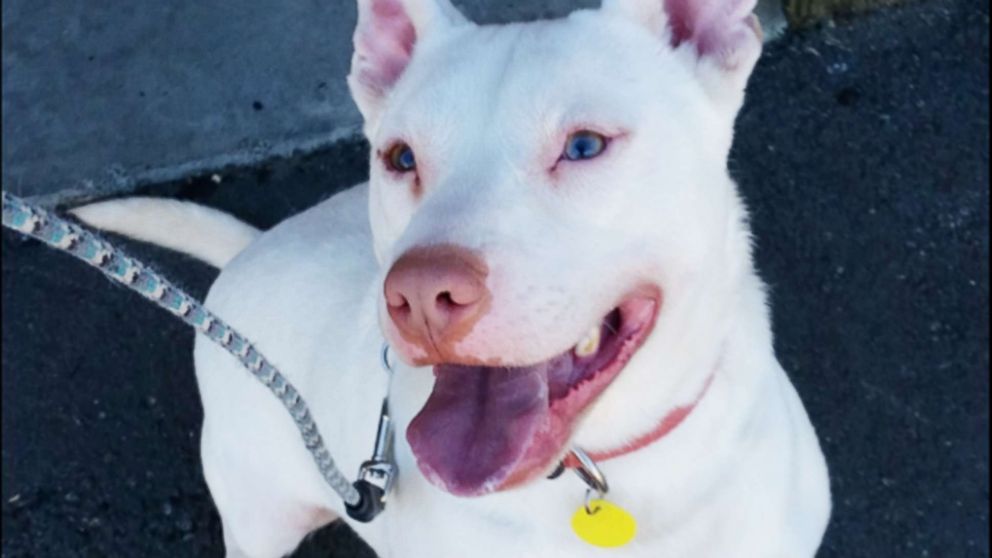Hearing-impaired dog makes history by joining K-9 unit after being deemed unadoptable
A hearing-impaired dog who was stuck at two different animal shelters with no hope of being adopted has a new career as a K-9 dog in Washington state.
The dog, a pit bull terrier mix named Ghost, is making history as the first hearing-impaired narcotics detection certified dog in the state, and possibly the country, according to his handler.
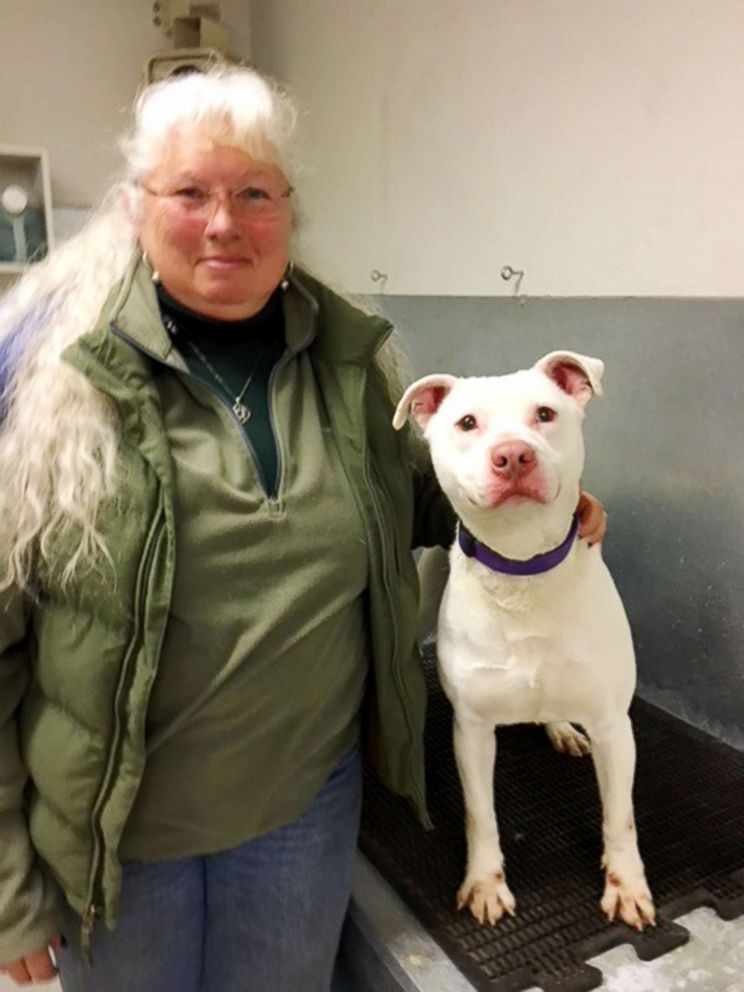
“He is an absolute working machine,” Joe Henderson, K-9 program manager for the Washington Department of Social and Health Services, told ABC News. “He’s a very high-drive dog with lots of energy.”
The same energy that makes Ghost excel in his job alongside Henderson searching for illegal narcotics left him without a home in his home state of Florida.
Ghost, who is estimated to be around 2 years old, was found abandoned on the street at a young age and taken into a shelter. He was so rambunctious that he tore through kennels and once destroyed the inside of a car he was left in, according to Henderson.
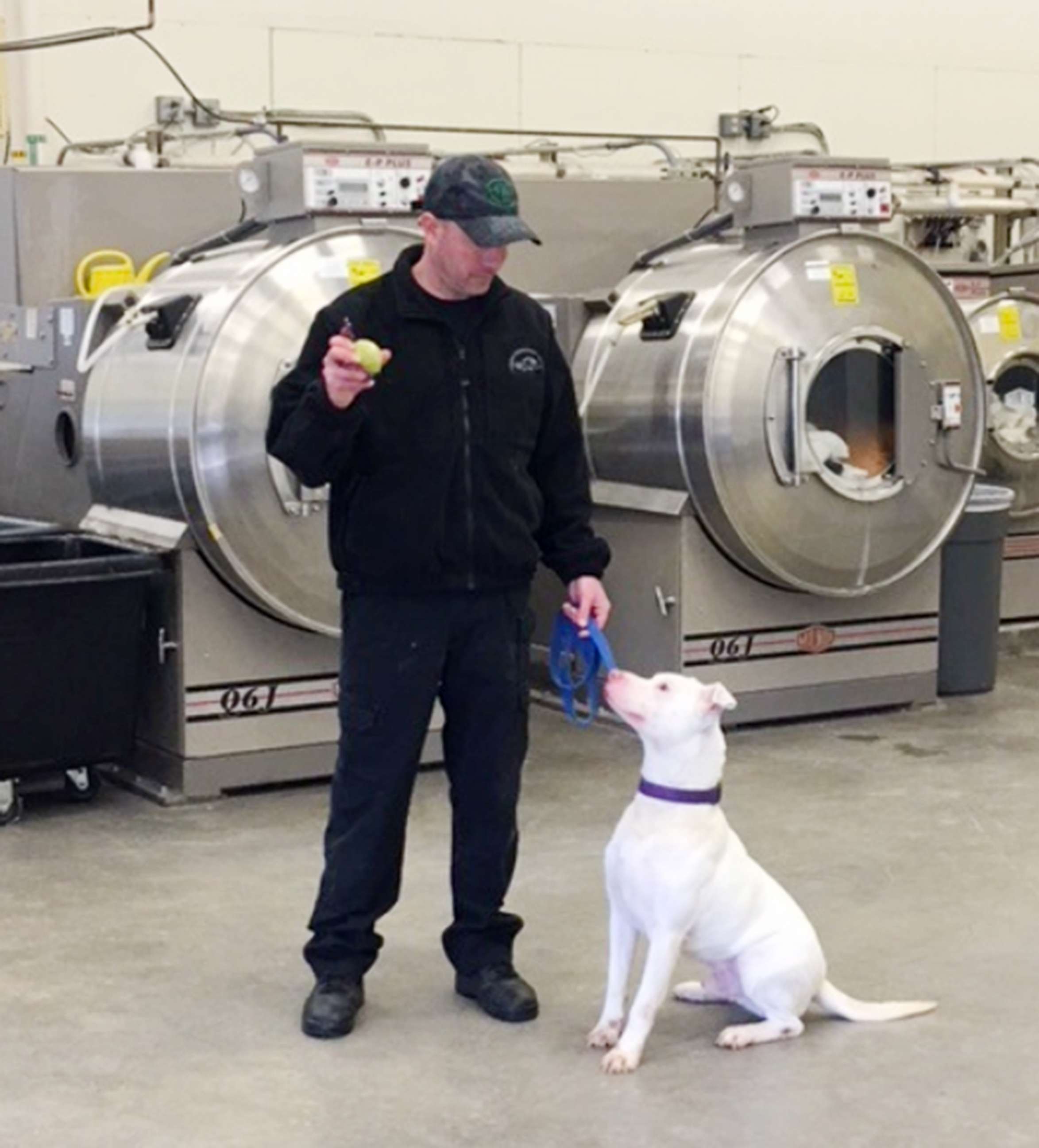
The Florida shelter sent out a call to other shelters across the country in hopes of finding a home for Ghost. A Humane Society shelter in Washington offered to take in Ghost, where he was discovered by Barb Davenport, K-9 program manager for the Washington Department of Corrections.
“The staff reiterated that they had not had anyone express any interest in the dog in the time they’d had him,” she recalled. “I was willing to take him on as a project.
"I’m always up for a challenge," added Davenport, who said she has trained more than 450 rescue dogs in her 35 years at the Department of Corrections.
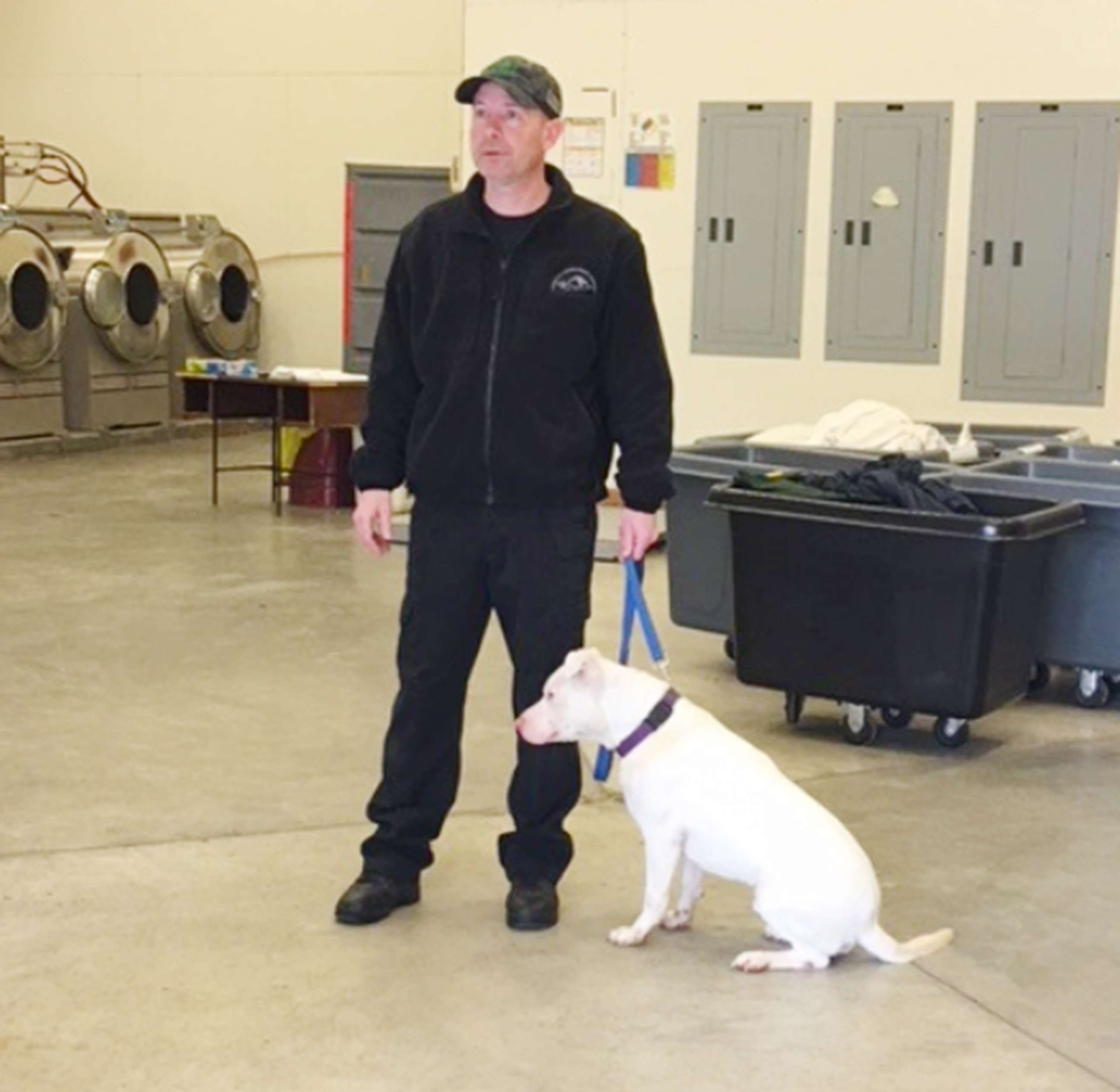
Henderson and Davenport, who had never before worked with a hearing-impaired dog, spent around 250 hours training Ghost to join the K-9 unit.
Henderson developed a type of sign language to communicate with Ghost and relied on a vibration collar to help teach Ghost to look at him for commands.
“The hardest part was for Ghost to be looking at me when I needed to give him a command,” Henderson said. “They’re still dogs, no matter if they’re hearing-impaired or they can hear.”
Henderson, who keeps Ghost at his home, said the dog’s heightened sense of smell gives him a major advantage in the job. The fact that Ghost cannot hear also helps when he accompanies Henderson to correctional facilities.
“All the offenders whistle and bang on stuff and try to distract the dog but that doesn’t affect this dog,” he said of Ghost. “This dog doesn’t know the difference. It works out absolutely perfectly.”
Henderson said he remembers the exact moment, about three weeks into training, when he clicked with Ghost and said to himself, “Oh, this is going to be a good career.” Ghost passed received his certification from Washington state in September, Henderson noted.
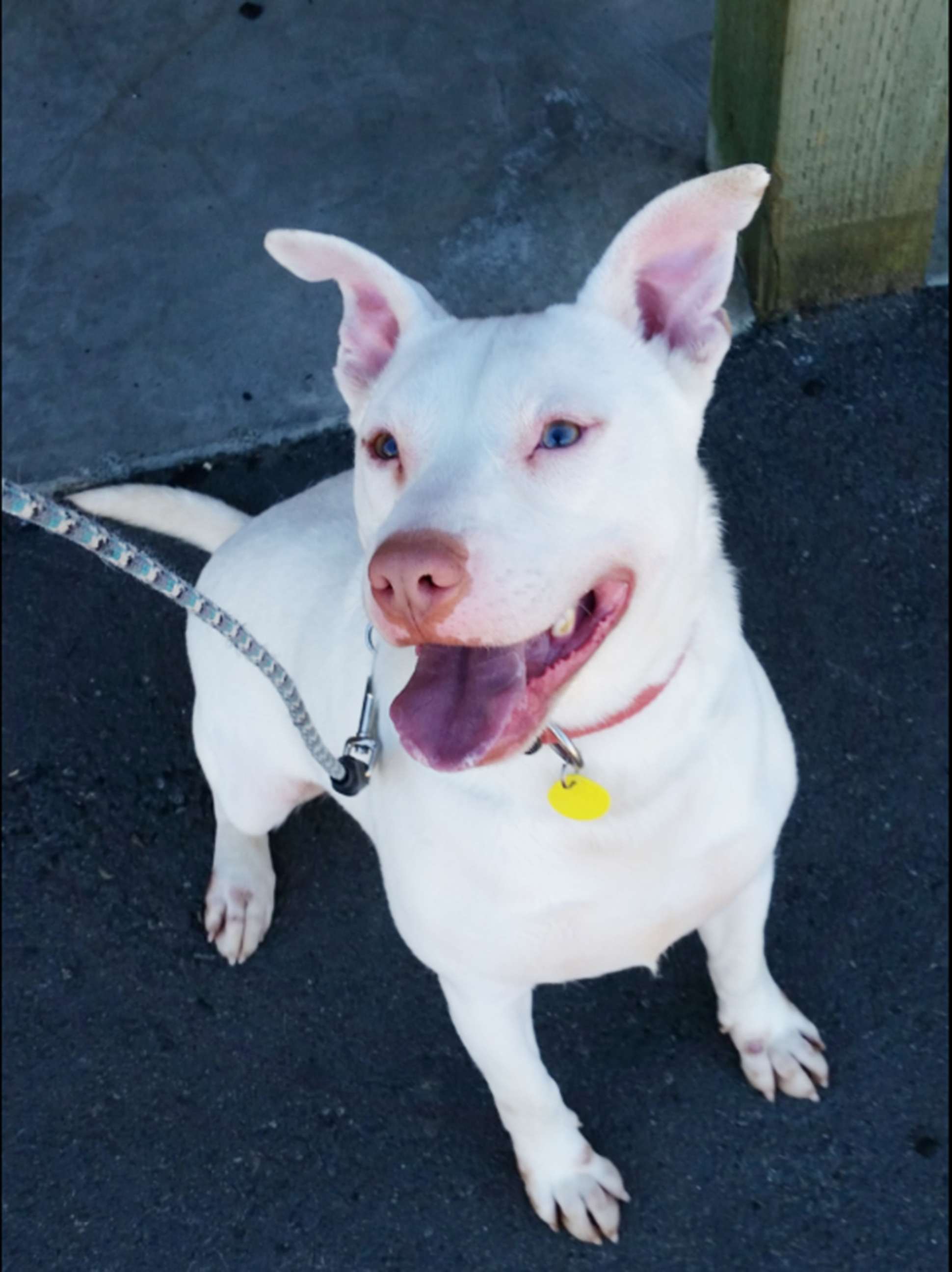
A dog like Ghost can expect to work more than 10 years in the K-9 unit, according to Henderson.
Henderson added that no-kill shelters, like the one from which Ghost was rescued, are crucial recruiting centers for dogs that are hard to place in homes but are full of potential.
“Once you give them a job, they’re excellent at it,” he said. “Without a job, they’re kind of lost.”
